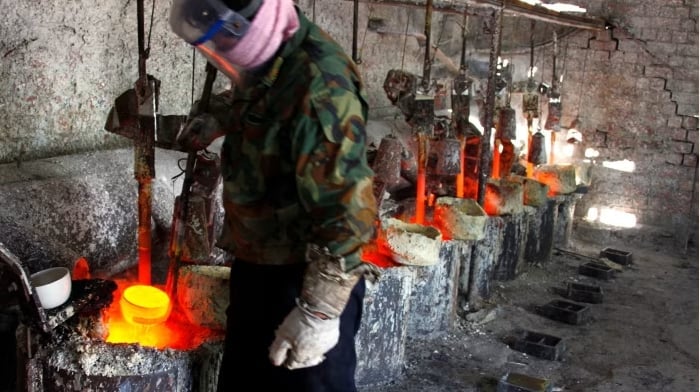June 13, 2025 | 09:27 GMT +7
June 13, 2025 | 09:27 GMT +7
Hotline: 0913.378.918
June 13, 2025 | 09:27 GMT +7
Hotline: 0913.378.918

China dominates the industry for processing rare earths and rare earth magnets © David Gray/Reuters
Western companies say China is demanding sensitive business information to secure rare earths and magnets, raising concerns about potential misuse of data and exposure of trade secrets.
Beijing’s commerce ministry is asking for production details and confidential lists of customers as part of its export approval process for critical minerals and magnets, according to multiple companies and official guidelines.
China dominates the processing of rare earths and manufacturing of the magnets in which they are used. These magnets are widely used in electronics, electric vehicle motors, wind turbines and defence applications such as fighter jets, giving Beijing a significant point of leverage with its trading partners. Frank Eckard, chief executive of German magnet maker Magnosphere, said Chinese authorities were asking companies to reveal “confidential information” about their products and businesses to obtain export approvals.
“It’s a matter of [China] getting information . . . officially” rather than “trying to steal it”, he said. In early April, Chinese authorities introduced stricter export controls on seven rare earth metals and related magnet materials as part of its tit-for-tat trade war with the US.
The move sent companies around the world rushing to secure supplies to maintain production. The US and China this week struck a framework deal under which President Donald Trump said Beijing would ease constraints on the flow of rare earths, a priority for the White House.
China has not said it would abandon its export controls and it was unclear if the latest deal would affect the approval process for shipments of the critical materials. Under the current rare earths licensing regime, China requires foreign companies to submit comprehensive data about their operations, workforce, end-use applications and production information.
Companies can be also asked to provide images of products, facilities and details of past business relationships, according to the commerce ministry guidelines for dual-use exports.
“They ask for a lot of things, really a lot of things,” said Andrea Pratesi, supply chain director at Italy’s B&C Speakers, which makes speakers for concerts at a plant near Florence. He said the company had submitted pictures and a video of its production line as well as information about its market, the names of its customers and some customer orders with names blurred out.
“We had to, otherwise they put aside all your papers and wait for what they requested,” he said, adding that B&C had received approval for two orders and were waiting on a third. “We have nothing to hide — we produce loudspeakers.”
FT

(VAN) As of Friday, a salmonella outbreak linked to a California egg producer had sickened at least 79 people. Of the infected people, 21 hospitalizations were reported, U.S. health officials said.

(VAN) With the war ongoing, many Ukrainian farmers and rural farming families face limited access to their land due to mines and lack the financial resources to purchase needed agricultural inputs.

(VAN) Vikas Rambal has quietly built a $5 billion business empire in manufacturing, property and solar, and catapulted onto the Rich List.

(VAN) Available cropland now at less than five percent, according to latest geospatial assessment from FAO and UNOSAT.

(VAN) Alt Carbon has raised $12 million in a seed round as it plans to scale its carbon dioxide removal work in the South Asian nation.

(VAN) Attempts to bring down the price of the Japanese staple have had little effect amid a cost-of-living crisis.